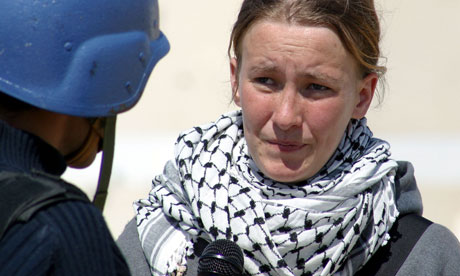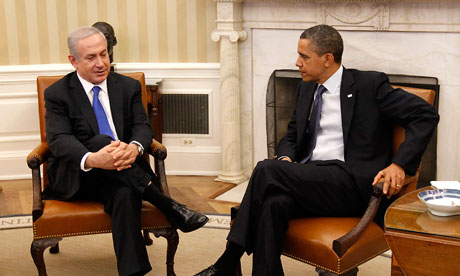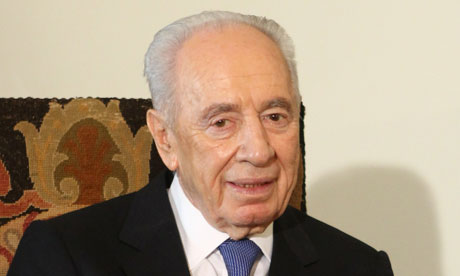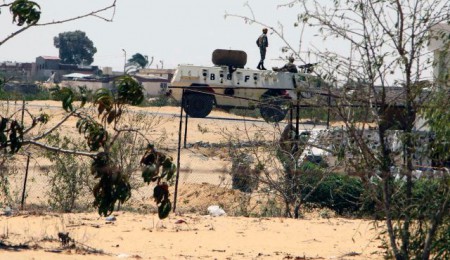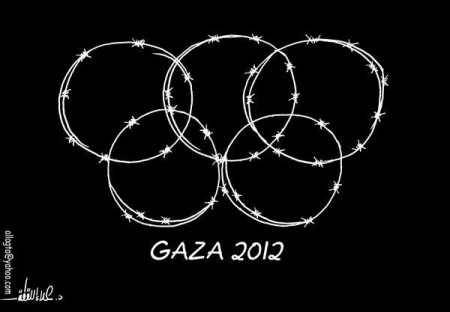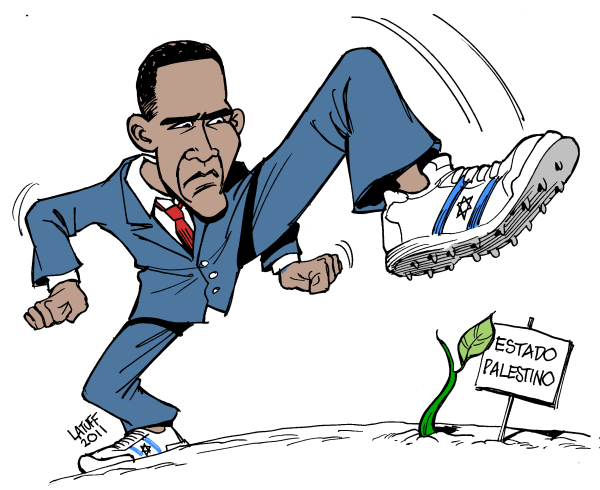EDITOR:Israeli justice is a sham
Shame on Israel! Shame for murdering Rachel, then for hiding the facts, tailoring the ‘investigation’, and now for producing a legal travesty justifying the murder while removing itself from the realm of responsibilities. Israel has shed blood of tens of thousands, from Beirut to Gaza and beyond, and never considers itself responsible for a single death. Can there be a higher degree of hypocrisy and pretense? History will judge those who cannot judge themselves! The Israeli system of justice exists in order to exonerate war crimes, this is quite clear.
We will not allow Rachel’s name to be forgotten, or her callous murder to be forgiven, like the thousands of Palestinians murdered all the time, which she tried to protect, paying with her life. Damn the murderers, and damn their coverup and corrupt ‘justice’!
Rachel Corrie lawsuit result ‘dangerous precedent’ say human rights groups: Guardian
Concern ruling will allow Israel to exploit ‘legal black hole’ and avoid responsibility for its actions
Human rights organisations have warned of a “dangerous precedent” following an Israeli court’s dismissal of a civil lawsuit over the death of US activist Rachel Corrie, which stated that Israel could not be held responsible because its army was engaged in a combat operation.
Corrie “was accidentally killed in the framework of a ‘war-related activity’ … [and] the state bears no responsibility for the damages inflicted on the plaintiffs resulting from a war-related action,” said Judge Oded Gershon at Haifa district court.
The 23-year-old activist was crushed by a military bulldozer which she believed was intent on demolishing a Palestinian home in Rafah, southern Gaza, in March 2003. Gershon ruled that it was a “regrettable accident” that Corrie had brought upon herself. There had been no fault in the internal Israeli military investigation, which cleared the bulldozer driver of any blame, the court found. “The deceased was in a blind spot – the operator didn’t see her,” said Gershon.
Corrie had “put herself in a dangerous situation” and could have saved herself by moving out of the zone of danger, he said. The area was “the site of daily warfare” and a closed military zone, and the US government had warned its citizens not to go there.
Hussein Abu Hussein, the Corrie family’s lawyer, said the ruling sent “a very dangerous message and precedent that there are no restrictions on Israeli military behaviour in Gaza and the West Bank”. The ruling would “close the doors of justice to civilian victims”, including foreigners, and “expand a legal black hole” in which Israel seeks to evade responsibility for its actions.
The verdict, he said, was “yet another example of where impunity has prevailed over accountability and fairness. We knew from the beginning that we had an uphill battle to get truthful answers and justice, but we are convinced that this verdict distorts the strong evidence presented in court, and contradicts fundamental principles of international law with regard to protection of human rights defenders. In denying justice in Rachel Corrie’s killing, this verdict speaks to the systemic failure to hold the Israeli military accountable for continuing violations of basic human rights.”
Human Rights Watch said the ruling contravened international law, which is intended to protect non-combatants in war zones, and set “a dangerous precedent”. “The idea that there can be no fault for killing civilians in a combat operation flatly contradicts Israel’s international legal obligations to spare civilians from harm during armed conflict and to credibly investigate and punish violations by its forces,” said Bill van Esveld, a senior Middle East researcher at HRW.
Shawan Jabarin, director of the Palestinian human rights organisation, Al Haq, said: “Israel has claimed that it is not responsible for the death of a civilian in armed conflict. However, this flatly ignores international law, which stipulates that Israel is under an obligation to take all measures to ensure that no civilians will be harmed during hostilities, and must at all times distinguish between military targets and civilians.
“The presence of a civilian in a combat zone does in any way not affect their right to protection. Instead, their protected status applies regardless of their location in a conflict, and international law clearly states that they must be protected against acts of violence in all circumstances.”
Corrie’s parents, Cindy and Craig, of Olympia, Washington State, sued the state of Israel, accusing it of the unlawful or intentional killing of their daughter or of gross negligence.
The family was “deeply saddened and deeply troubled” by the ruling, Cindy Corrie said afterwards. “I believe this was a bad day, not only for our family, but for human rights, humanity, the rule of law and also for the country of Israel.” The state, she said, “has worked extremely hard to make sure that the truth about what happened to my daughter is not known and those responsible will not be held accountable”. The family will appeal to the supreme court.
The Israeli justice ministry described Corrie’s death as “a tragic accident”. The bulldozer driver and his commander were “exonerated of any blame for negligence”, it said in a statement.
At the time of Corrie’s death, house demolitions were common; part of an increasing cycle of violence from both sides. The Israeli Defence Forces (IDF) said the homes it targeted were harbouring militants or weapons or being used to conceal arms-smuggling tunnels under the border. Human rights groups said the demolitions were collective punishment. Between 2000 and 2004, the Israeli military demolished 1,700 homes in Rafah, leaving about 17,000 people homeless, according to the Israeli human rights organisation B’Tselem.
Corrie was one of a group of around eight international activists acting as human shields against the demolitions. Fellow activists said she was clearly within the line of sight of the bulldozer driver, who drove straight at her.
Israel promised a “thorough, credible and transparent” investigation into her death. Within a month, an IDF internal inquiry had concluded that the driver of the bulldozer had not seen the activist and that no charges would be brought.
During the Corries’ civil lawsuit, which lasted almost two and a half years, the bulldozer driver testified anonymously from behind a screen for “security reasons”. He insisted that the first time he saw the activist was when he “saw people pulling the body out from under the earth”.
His commanding officer, Colonel Pinhas Zuaretz, told the court that Rafah was a war zone in 2003 and said that “reasonable people would not be there unless they had aims of attacking our forces”.
How the US and Israeli justice systems whitewash state crimes: Guardian CiF
Courts are supposed to check the abuse of executive power, not cravenly serve it. But in the US and Israel, that is now the case
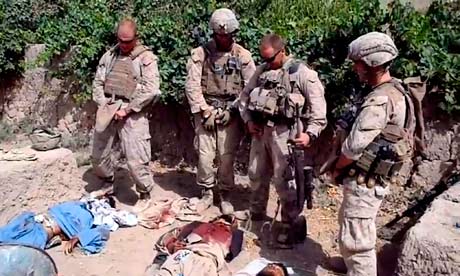
The US military announced on Monday that no criminal charges would be brought against the US marines in Afghanistan who videotaped themselves urinating on the corpses of Taliban fighters. Nor, the military announced, would any criminal charges be filed against the US troops who “tried to burn about 500 copies of the Qur’an as part of a badly bungled security sweep at an Afghan prison in February, despite repeated warnings from Afghan soldiers that they were making a colossal mistake”.
In doing so, the US military, as usual, brushed aside demands of Afghan officials for legal accountability for the destructive acts of foreign soldiers in their country. The US instead imposed “disciplinary measures” in both cases, ones that “could include letters of reprimand, a reduction in rank, forfeit of some pay, physical restriction to a military base, extra duties or some combination of those measures”. Both incidents triggered intense protests and rioting that left dozens dead, back in February this year.
Parallel to that, an Israeli judge Tuesday dismissed a lawsuit against the Israeli government brought by the family of Rachel Corrie, the 23-year-old American student and pro-Palestinian activist who was killed by a military bulldozer in 2003 as she protested the demolition of a house in Gaza whose family she had come to befriend. Upon learning of the suit’s dismissal, Corrie’s mother, Cindy, said:
“I believe this was a bad day, not only for our family, but for human rights, humanity, the rule of law and also for the country of Israel.”
Despite Corrie’s wearing a bright orange vest, Judge Oded Gershon, in a 62-page decision, ruled that the bulldozer driver did not see her and her death was thus an accident. He went on to heap blame on Corrie for her own killing, arguing that, contrary to what “any reasonable person would have done”, she “chose to put herself in danger” by trying to impede “a military activity meant to prevent terrorist activity”.
The commonality in all three of these episodes is self-evident: the perversion of the justice system and rule of law as nothing more than a weapon to legitimize even the most destructive state actions, while severely punishing those who oppose them. The US and its loyal thinktank scholars have long demanded that other states maintain an “independent judiciary” as one of the key ingredients for living under the rule of law. But these latest episodes demonstrate, yet again, that the judiciary in the US, along with the one in its prime Middle East client state, is anything but “independent”: its primary function is to shield government actors from accountability.
The US military has continuously imposed pitifully light “punishments” on its soldiers even for the most heinous atrocities. The wanton slaughter of two dozen civilians in Haditha, Iraq and the severe and even lethal torture of Afghan detainees generated, at worst, shockingly short jail time for the killers and, usually, little more than letters of reprimand.
Contrast this tepid, reluctant wrist-slapping for the brutal crimes of occupying soldiers with what a UN investigation found was the US government’s “cruel and inhuman treatment” of Bradley Manning before he was convicted of anything. Manning has been imprisoned for more than two years now without having been found guilty of any crimes – already longer than any of the perpetrators of these fatal abuses in Iraqand Afghanistan. He faces life in prison at the age of 23 for the alleged “crime” of disclosing to the world overwhelming evidence of corruption, deceit and illegality on the part of the world’s most powerful factions: disclosures that helped thwart the Obama administration’s efforts to keep US troops in Iraq, and which, as even WikiLeaks‘ harshest criticsacknowledge, played some substantial role in helping to spark the Arab spring.
Notably, the first disclosure for which Manning was allegedly responsible – the videotape of an Apache helicopter gunning down unarmed Reuters journalists and then the rescuers who came to help the wounded, including two young children – resulted in zero accountability: the US military exonerated everyone involved. Instead, it is Manning, the person accused of exposing these crimes, who is punished as the real criminal.
And herein lies the real function of the American justice system, clearly revealed time and again. It is to protect high-level actors from accountability even for the most egregious of crimes, while severely punishing those who reveal or take a stand against those crimes, thus deterring and intimidating any future opposition.
That is the mentality that has led the Obama department of justice to aggressively shield all Bush officials from any and all accountability for their torture and surveillance crimes, while launching an unprecedented persecution campaign against whistleblowers. As always in US justice, the “real” criminals are those who alert the world to high-level crimes, not those who commit them. That is why the only person to suffer any repercussions from the Bush NSA eavesdropping scandal was Thomas Tamm: the mid-level DOJ lawyer who learned of the illegal program and alerted the New York Times about it. Those who authorized those crimes have been fully shielded from any form of punishment.
It is this same mentality that has led the US federal judiciary to produce the most disgraceful political fact of the last decade. Not a single victim of America’s “war on terror” abuses – even those now acknowledged by the US government to have been completely innocent – have been allowed even to have their cases heard in an American court on the merits. They’ve all had the courthouse doors slammed shut in the facesby courts that have accepted the US government’s claims that its own secrecy powers and immunity rights bar any such justice. Crimes committed by the state or in advancement of its agenda are simply immune from the rule of law in the US.
The same exploitation of the justice system is glaringly evident in the Rachel Corrie travesty. As the Guardian’s former Israel (and now Washington) correspondent Chris McGreal writes, the dismissal of this suit is simply a by-product of the “virtual impunity for Israeli troops no matter who they killed or in what circumstances”. That’s because Israeli courts, like American courts, have submissively accepted the supreme fiction of both governments: anyone impeding government actions is a terrorist or terrorist-enabler who gets what they deserve, while the actions of the state, no matter how savage, can never be anything other than legitimate.
Cindy Corrie, Rachel’s mother, said after the verdict that Israel “employed a ‘well-heeled system’ to protect its soldiers and provide them with immunity”. Indeed, the Israeli “investigation” into Corrie’s death has been such a laughable whitewash that even the US ambassador to Israel last week told the Corrie family that he “did not believe the Israeli military investigation had been ‘thorough, credible and transparent’, as had been promised by Israel.” All of this, writes McGreal, shows how “covering up the truth about the killings of innocents, including Corrie, became an important part of the survival strategy because of the damage the truth could do to the military’s standing, not only in the rest of the world but also among Israelis.”
As I noted on Sunday, it is expected, inevitable, that those who wield political power will abuse it for corrupt and self-serving ends. That is why there are institutions designed to check and combat that abuse. The rule of law, and an independent judiciary applying it, is ostensibly one of those institutions. But – like establishment media outlets and most academics – this justice system now does the opposite: it is merely another weapon used to legitimize crimes by the powerful and crush those who oppose them.
All three of this week’s travesties, in the US and in Israel, are hardly surprising. To the contrary, they are the inevitable by-products of societies that recruit every institution in service of defending even the most wanton abuses by the state.


